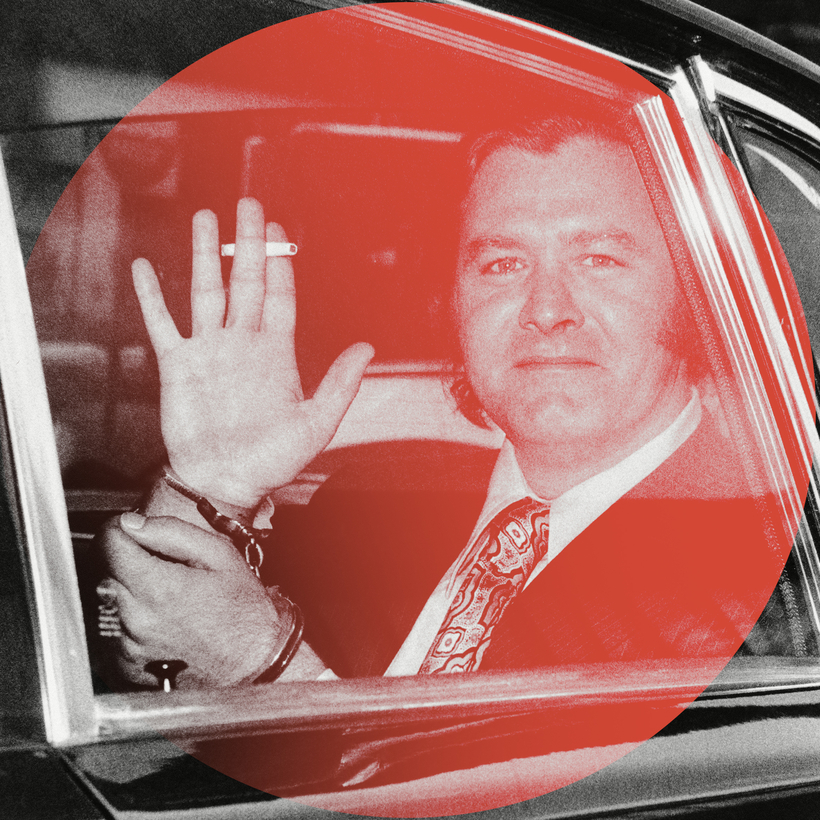Sarah Weinman’s biography of the murderer, sexual predator, and con artist Edgar Smith is provocative and unsettling. It compels the reader to ponder weighty questions: Did a savage thug exploit smart, decent people? Can altruism sometimes be as lethal as psychopathology? Evil pervades this book, but it makes for a terrific read.
On the night of March 4, 1957, a 23-year-old Edgar Smith drove 15-year-old Victoria Zielinski to a lovers’ lane in Bergen County, New Jersey, and decerebrated her—literally bashed her brains out. The police quickly arrested Smith, a former Marine who was at the time married with a child, for the murder. A jury took less than two hours to find him guilty, and he was sentenced to death.
Smith was scheduled to die in August 1958, but appeals to various state and federal courts kept him alive. As did the arrival of a most unexpected deus ex machina. Two, actually: the Knopf editor Sophie Wilkins and, more important, William F. Buckley, the architect of the modern conservative movement and founder and editor of its house organ, the National Review.

Wilkins first learned about Smith through a 1965 Esquire article written by Buckley in which he argued for Smith’s innocence, on the basis that he had been framed for the crime. She too concluded that Smith was innocent, and decided to publish his memoir, Brief Against Death, in 1968.
As Weinman writes in Scoundrel, Buckley and Smith started corresponding in 1962, after Buckley was alerted to a newspaper article that quoted Smith, still on death row at the time, as saying that he read the National Review. Buckley soon became convinced of Smith’s innocence, and was instrumental in getting him out of jail. He created a legal-defense fund for Smith, which he also contributed to personally. He retained Steven Umin, a superb lawyer and colleague of renowned defense attorney Edward Bennett Williams, to represent Smith. Through his letters, Buckley was a constant, potent morale booster. And his status in the world of American conservatism gave legitimacy to Smith’s battle.
Smith was also the beneficiary of the Warren Supreme Court’s decisions liberalizing criminal-law procedures. In May 1971, Weinman writes, a federal judge ruled that “Edgar’s conviction should be overturned on the grounds that his unsigned confession was coerced and was therefore unconstitutional. He ordered a new trial.” That didn’t happen. Instead, Smith’s lawyers crafted a plea bargain in which he admitted to killing Victoria Zielinski and was re-sentenced to time served and probation. In December of that year, he was released from prison, after spending almost 15 years waiting to be electrocuted.
Smith became, for a time, the literati’s pet, writing articles and book reviews for glossy magazines such as Esquire and Playboy (and, of course, the National Review), and turning out a few more books, including some novels.
Unfortunately, under his flimsy slickness, Smith was still a brute. In 1974, he moved to San Diego and married Paige Hiemier. (His first marriage had ended in divorce during his time in prison.) By then, his writing assignments had dried up, he’d cycled through a series of crummy jobs, and he needed money. He partly released his rage by sexually abusing his wife.

Then, on October 1, 1976, Smith pulled 33-year-old Lefteriya Ozbun into his car and told her, “I’m going to take your damn money, and I’m going to stick a knife in you.” Years later, Ozbun told the Los Angeles Times, “I’d never seen eyes like that. They were so cold and filled with hate. I knew if I didn’t fight I’d never see my kids again.” Fight she did, and eventually she managed to escape the car, injured but alive. (Smith’s knife had plunged “so deep,” Weinman writes, “that only the handle stuck out.”) Smith fled California but was arrested by the F.B.I. after he left information about his whereabouts at Buckley’s office, who notified the bureau.
In March of 1977, Smith was tried for attempted murder, kidnapping, and other serious crimes. As part of his complicated legal strategy, he took the stand and confessed to having murdered Victoria Zielinski, to “his desire to rape women” (though he asserted that Ozbun was his first attempt, which seems dubious), “as well as [to] the attempted molestation of a young girl while he was still a teen.” He was found guilty of all charges and sentenced to life in prison. He died in March 2017, aged 83, after spending almost the last 40 years of his life in California’s penal system.
After Smith’s California conviction, Weinman quotes a Buckley acquaintance as saying, “He thought he had made a terrible mistake, and he was blaming himself for what had happened [to Lefteriya Ozbun].” But when challenged publicly about supporting Smith, he was defensive and legalistic: “If I had been a juror in [the New Jersey murder trial] I would have found Smith not guilty because it was not proven beyond a reasonable doubt,” he told one interviewer.
Two years after the Ozbun case, Buckley still overpraised Smith. In the February 1979 issue of Life, Weinman notes, “[Buckley] wrote that he still believed Edgar to be an extraordinary man, with much social savvy and wit.”

Howard Schneider is a New York–based critic

